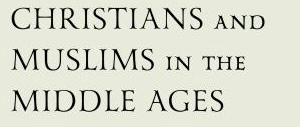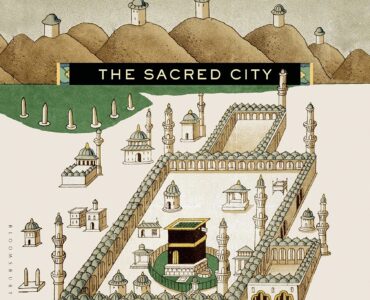
Ahmadiyah
A messianic movement in modern Islam, the Aḥmadīyah has been one of the most active and controversial movements since its inception in British India in 1889. It has sustained its activities for more than a century and has been unrivaled in its dedication to the propagation of the faith. Aḥmadī mosques and missionary centers have been established not only in the Indian subcontinent but also in numerous cities of the western world, Africa, and Asia.
The core of Aḥmadī thought is prophetology, which draws its inspiration from the great medieval Muslim mystic Muḥyī al-Dīn ibn al-ʿArabī (1165–1240 AD), who postulated an uninterrupted succession of non-legislative prophets following Muḥammad. Claiming for its founder messianic and prophetic status, the Aḥmadī movement aroused the fierce opposition of Sunnī Muslims and was accused of rejecting the Islamic dogma, according to which Muḥammad was the last prophet. While India was under British rule, the controversy remained a doctrinal dispute among private individuals or voluntary organizations, but in 1947, when the Aḥmadī headquarters moved to the professedly Islamic state of Pakistan, the issue became a constitutional problem of major importance. Religious scholars belonging to the Sunnī mainstream demanded the formal exclusion of the Aḥmadīs from the Islamic fold and achieved that objective in 1974. The history of the Aḥmadī movement thus affords a unique example of the intricate relationship between religion and state in Islam, an example in which secularly elected members of political institutions arrogated to themselves the authority to determine the religious affiliation of a group of citizens, and to draw constitutional conclusions from this determination.
History
Mirzā Ghulām Aḥmad, the founder of the Aḥmadī movement in Islam, was born in the late 1830s in Qādiān, a village in the Punjab. His claim to special spiritual standing was first announced in the early 1880s. The movement was established in March 1889, when Ghulām Aḥmad accepted a pledge of allegiance from a number of his followers in the Punjabi city of Ludhiana. He devoted the following years to prolific literary activity, to the organization and expansion of the new community, and to many polemical encounters with Sunnī ʿulamāʿ (religious scholars), Christian missionaries, and members of the Hindu revivalist movement of Ārya Samāj. A number of periodicals were launched in Qādiyān: including the monthly Review of Religions, the main English organ for the propagation of the Aḥmadī view of Islam.
Ghulām Aḥmad died on 26 May 1908. He was succeeded in the leadership of the community by Nūruddīn, one of his first supporters, who became the first “Successor of the Messiah” (Khalīfat al-Masīḥ). During his leadership, the unity of the movement was threatened by differences of opinion on issues such as the relationship with non-Aḥmadī Muslims and the nature of the community’s leadership.
Nūruddīn died in 1914 and was succeeded by Ghulām Aḥmadʾs son Bashīruddīn Maḥmūd Aḥmad. The differences in the movement came to a head, and the Aḥmadīyah split into two factions, known as the Qādiyānī and the Lāhorī. The Qādiyānī faction, which was larger and retained control of the movement’s headquarters and main publications, was headed by Maḥmūd Aḥmad, now known as Khalīfat al-Masīḥ II; the prominent personalities among the Lāhōrīs were Muḥammad ʿAlī and Khvājah Kamāluddīn. In addition to personal friction among members of the two groups, the focal points of disagreement were the nature of Ghulām Aḥmad’s religious claim, the extent of Maḥmūd Aḥmad’s authority in community affairs, and the attitude to be adopted toward non-Aḥmadī Muslims. The Qādiānīs stressed Ghulām Aḥmadʿs claim to prophethood, maintained that Maḥmūd Aḥmadʿs religious authority was not less than that of Ghulām Aḥmad and left little doubt that they considered non-Aḥmadī Muslims infidels. The Lāhorīs, on the other hand, held that Ghulām Aḥmad never claimed to be more than a “renewer” (mujdi) of religion; they suggested that the community leadership be entrusted to a group such as the Supreme Council of the Aḥmadīyah (Ṣadr Anjuman-i Aḥmadīyah) rather than to one successor of the messiah; and they deemed infidels only those Muslims who regarded the Aḥmadīs the same. This attitude toward non-Aḥmadīs was intended to minimize friction with other Muslims.
Following the split, the Aḥmadīs continued their missionary and literary +horī publications deal almost exclusively with familiar themes of Islamic modernism. They contain few references to ideas that distinguish the Aḥmadīyah from the Islamic mainstream. The Qādiānī Review of Religions, however, continued to stress the crucial role of Ghulām Aḥmad in the spiritual history of mankind. Its pages provide translations from Ghulām Aḥmadʿs works and details of such Aḥmadī missionary activities as the establishment of mosques and centers and cases of conversion to Islam. Several new institutions were established in Qādiān by order of Maḥmūd Aḥmad in order to coordinate the worldwide missionary and literary endeavors of the movement.
Following the partition of the subcontinent in 1947, the headquarters of the movement moved to Pakistan, where a town called Rabwa (after Qurʿān 23:51) was built in order to serve as the new center of the Aḥmadīyah. In Pakistan the movement faced increasing difficulties. Various Islamic groups, led by the Jamāʿat-i Islāmī, insisted that the Aḥmadīs be declared a non-Muslim minority and excluded from public office. In the early 1950s, this agitation was directed primarily against Muhammad Zafrullah Khan, a prominent Aḥmadī who served at that time as Pakistan’s foreign minister. The demand was accompanied by widespread anti-Aḥmadī riots in the Punjab, but the government stood its ground.
The Aḥmadī issue came to the fore again in 1974. Following a clash between Aḥmadī and non-Aḥmadī students in Rabwa, pressure to exclude the Aḥmadī from the fold of Islam was renewed; it was accompanied by riots and threats of a general strike by the religious leadership. After some initial resistance, Prime Minister Zulfiqar ʿAli Bhuttoʾs government gave way and the National Assembly decided “to discuss the status in Islam of persons who do not believe in the finality of the prophethood of Muḥammad (peace be upon him).” After lengthy deliberations behind closed doors, the Assembly met in open session on September 7, 1974 and unanimously decided to amend the constitution of Pakistan by adding a clause asserting that:
“A person who does not believe in the absolute and unqualified finality of the prophethood of Muḥammad (peace be upon him), the last of the Prophets, or claims to be a Prophet, in any sense of the word or of any description whatsoever, after Muḥammad (peace be upon him), or recognizes such a cl’or a religious reformer, is not a Muslim for the purposes of the Constitution or Law.”
In April 1984, in the context of intensifying the Islamic characteristics of public life in Pakistan, President Muhammad Zia ul-Haq promulgated an ordinance (known as Ordinance XX) making Aḥmadī religious observance a punishable offense. Among other things, the Aḥmadīs were forbidden to refer to their faith as Islam, to honor their leaders by traditional Muslim epithets, their faith, or to call their places of worship mosques. Since the Constitutional Amendment of 1974 declared the Aḥmadīs non-Muslims, Aḥmadīs who engaged in such and similar activities were described as “posing as Muslims.” Allujj these offenses were made punishable by three years of imprisonment and a fine. In the wake of this ordinance, Mirzā Ṭāhir Aḥmad, the head of the Aḥmadīyah at the time, moved to London; the headquarters of the movement has been in the British capital ever since. As of May 2007, the movement is under the leadership of Masrūr Aḥmad, the fifth successor of the founder.
Since the late 1980s, the treatment of the Aḥmadī movement was influenced by the so-called “blasphemy laws” which were promulgated in Pakistan and imposed life imprisonment, fine and even capital punishment for blasphemy. Aḥmadī views were considered blasphemous because the belief in the prophethood of Ghulām Aḥmad was seen as defiling the name of the Prophet Muḥammad as the last prophet, according to an interpretation of Qurʿān 33:40. Responding to these attempts to exclude them from the Muslim fold, the Aḥmadīs made sustained efforts to assert their Muslim identity. Wearing a badge containing the Muslim declaration of faith (shahādah) or inscribing it on walls of Aḥmadī houses or mosques became the most common components of this endeavor.
An organization called the “council for the preservation of the finality of prophethood” (majlis-i taḥaffuẓ-i khatm-i nubuwwat) was instrumental in the initiation of numerous legal proceedings against Aḥmadīs on the basis of the “blasphemy laws.” The most celebrated case of this kind resulted from the prosecution of a few Aḥmadīs who wore a badge with the Muslim declaration of faith. They were prosecuted for posing as Muslims and sentenced to one year of imprisonment and fines. All defendants lost their appeals at the Lahore High Court, but were granted leave to appeal before the Supreme Court of Pakistan. The Supreme Court rendered its decision on July 3, 1993. The Aḥmadīs argued that Ordinance XX violated their of religion, guaranteed by Article 20 of the Constitution. The majority of the court, however, viewed the matter differently. It asserted that t‘he Aḥmadīs had been declared non-Muslims; thus, behavior which is designed to demonstrate their adherence to Islam is a dangerous fraud which may encourage people to join their fold rather than the fold of Islam. Since the exercise of religious freedom is “subject to law, public order, and morality,” the fraudulent behavior of the Aḥmadīs is not protected by Article 20 of the Constitution. The arguments of the court majority were strengthened by reference to those pronouncements of Ghulām Aḥmad in which non-Aḥmadī Muslims had been pronounced non-Muslims. The court drew from these pronouncements the conclusion that nobody can simultaneously be an Aḥmadī and a Muslim, dismissed the appeals, and ordered the appellants to serve their sentences.
In addition to legal proceedings of this nature, Aḥmadīs were subjected to various types of harassment. Since the late 1980s, daily newspapers and Aḥmadī periodicals have reported numerous attacks against Aḥmadīs in Pakistan and in Bangladesh; their houses have been burned, their mosques destroyed, and Aḥmadī bodies have even been removed from Muslim graveyards.
Religious Thought
The religious thought of the Aḥmadīyah until 1914, and of its Qādiyānī branch since then, revolves around Ghulām Aḥmad’s persistent claim to be a divinely inspired religious thinker and reformer. The many ways in which Ghulām Aḥmad expressed his convictions enabled both his supporters and his rivals to make diverse and often contradictory interpretations of his claim to spiritual eminence. As has often been the case with Muslim revivalist and messianic movements, the starting point of Ghulām Aḥmad’s thought was the assertion that Muslim religion and society had deteriorated to the point that divinely inspired reforms were essential in order to arrest the process of decline and restore the pristine purity of Islam. It was against this background that Ghulām Aḥmad claimed to have been chosen by Allah for the task of revitalizing Islam.
Ghulām Aḥmad’s mission is described in his writings in diverse terms. The definition of his spiritual claim that was most acceptable to the Sunnī point of view was his declaration that Allah appointed him to be the renewer (mujaddid) of Islam in the fourteenth century A.H. More controversial was his claim to be the Mahdī and the Promised Messiah (Masīḥ-i Mawʿūd). He supported this claim by an elaborate Christology arguing that Jesus did not die on the cross but only swooned; that he was taken down and cured of his wounds; and that he went to India and died a natural death at the age of 120 in the city of Srinagar. The Christian belief in the resurrection of Jesus and his return in glory at the end of days is, according to Ghulām Aḥmad, groundless. It is incontrovertibly refuted in several verses in the Qurʿān (e.g., 3:55) and is a Christian invention designed to prove that the living Jesus is superior to the deceased Muḥammad, and that Christianity is consequently superior to Islam. Whenever a Muslim tradition seems to suggest the second coming of Jesus, it should be taken to indicate not the coming of Jesus himself, but that of a person similar to him. This person is Ghulām Aḥmad, whose spiritual role bears complete affinity with that of Jesus, in that both Jesus and Ghulām Aḥmad appeared when their people were subjected to foreign rule; both were rejected by their religiously decadent communities; both repudiated jihād; and neither brought a new law but rather vowed to revive laws brought by Moses and Muḥammad, respectively.
Ghulām Aḥmad’s repeated assertion that Allah made him a prophet was the most controversial formulation of his claim. Since it contradicted the Muslim dogma of Muḥammad as the last prophet, it brought upon Ghulām Aḥmad and his followers the most vociferous denunciations by the Sunnī ʿulamāʿ. However, Ghulām Aḥmad was able to maintain that his theology was compatible with the Muslim belief in the finality of Muḥammad’s prophethood. Following in the footsteps of Ibn al-ʿArabī, he divided prophets into two categories: tashrīʿī, legislative prophets, who were entrusted with bringing a new book of revealed divine law and were usually founders of new communities; and ghayr tashrīʿī, non- legislative prophets, who did not receive a new book of divine law but were sent to an existing community to urge it to implement the divine law brought by an earlier, legislative prophet.
According to Ghulām Aḥmad, the belief in the finality of Muḥammad’s prophethood applies only to the first, legislative category. This classification of prophets enabled Ghulām Aḥmad to attest that Muḥammad was, indeed, the seal of the prophets and to claim at the same time that Allah could not possibly leave Muslims without prophetic guidance after the death of Muḥammad, a condition that would make Muslims an accursed and abandoned community. Therefore, while it is true that no law-giving prophet can appear after Muḥammad, prophetic perfections are continuously bestowed upon his most accomplished followers, such as Ghulām Aḥmad, to whom Allah spoke and revealed his secrets. However, since Ghulām Aḥmad attained this position only by his faithful following of Muḥammad, his prophethood does not infringe upon Muḥammad’s status as the seal of the prop hets. Rather, the fact that the Prophet of Islam was capable of bestowing prophetic perfections on his accomplished followers proves Muḥammad’s superiority over his predecessors in the prophetic office. Muslims are thus the only community privileged with divine communication and prophethood after the completion of Muḥammad’s mission. Although this prophethood does not involve the revelation of new laws and is given only as a shadow of the prophethood of Muḥammad, its existence is a decisive indication of Islamic superiority over other religions.
Ghulām Aḥmad’s claim to be the Mahdī is closely related to his view of jihād. The classical tradition according to which the Mahdī “will break the cross, kill the swine, and abolish war” is interpreted in a way that transforms the Mahdī into an entirely peaceful figure. The statement that the Mahdī will “abolish war” is understood literally, and great stress is laid on it; on the other hand, the killing of the swine and the breaking of the cross are understood metaphorically and are said to indicate the Mahdī’s victory over Christianity by means of argument and power. Jihād with the sword has thus come to an end with the advent of the Mahdī. Even before that, however, jihād was far from all-m by infidels. This interpretation rejects the traditional view that the idea of jihād developed from a total prohibition in Mecca to a command of unrestricted validity in Medina. According to the Aḥmadīs, Islam has always been a religion dedicated to peace. Ghulām Aḥmad repeatedly denounced Muslims who preached violent jihād: not only did they distort an essential part of Islamic teaching, but also assisted Christian missionaries in misrepresenting Islam as a religion committed to expansion by violent means; the only jihād sanctioned by Islam is spreading the faith by preaching and persuasion.
Summary
The dispute between the Aḥmadīyah and mainstream Sunnī Islam stems from different approaches to the question of religious authority. As a messianic movement claiming a certain kind of prophethood for its founder and continuous divine inspiration for his successors, the Aḥmadīyah was bound to clash with the ʿulamāʿ, who felt that their authority as custodians of Islamic learning and interpreters of Islamic law was being undermined. The dispute was exacerbated by the fact that the ʿulamāʿ focused their opposition to the Aḥmadīyah on the emotional issue of Muḥammad’s honor, which was said to have been tarnished by Ghulām Aḥmad’s claim to have received divine revelation after the completion of Muḥammad’s mission.
As far as the Aḥmadī struggle within Islam is concerned, the main point of contention is thus the religious claim of Ghulām Aḥmad, which is couched in terms derived from medieval Sufism. In its relationship I with the non-Muslim world, however, the Aḥmadīyah is primarily engaged in defending Islam and depicting it as a liberal, humane, and progressive religion that has been systematically slandered by non-Muslims. This aspect of Aḥmadī teaching is well in line with that of modernist Muslim thinkers, though in other matters — for example, in their support for pardah (seclusion of women) and polygamy — the Aḥmadīs follow the traditional point of view. One of the essential differences between them and other contemporary Muslim movements is that the Aḥmadīs consider the peaceful propagation oof their version of Islam among Muslims and non-Muslims& alike to be an indispensable activity; in this they are persistent and unrelenting.
Ahmadiyah
621 – 003



